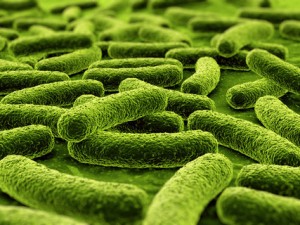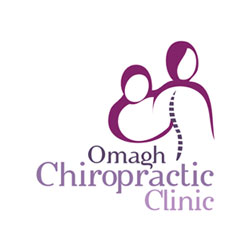Bacteria – Our Life Supporting Friends
 The health of your gut is vital to maintaining good health and so it is important to optimize the life supporting bacteria in your gut. This can be achieved by seeding your digestive tract with a good quality probiotic.
The health of your gut is vital to maintaining good health and so it is important to optimize the life supporting bacteria in your gut. This can be achieved by seeding your digestive tract with a good quality probiotic.
The digestive tract is a continuous tube reaching from the throat via the esophagus, the stomach, the small intestines, the large intestines, and the rectum to the anus. Even though this tube appears to be contained within the body, it is actually outside the body and acts as a barrier to prevent harmful microbes and toxin from entering into the body, just as the skin protects us from our external environment.
The digestive tract is colonized by life supporting bacteria along its’ entire length. It is estimated that there is about 100 trillion of these bacteria, weighing about three pounds in weight. There are about 500 different species of bacteria supporting life and ensuring well-being. It is postulated that 80% of your immune system lives in the gastro intestinal tract because of the important role theses bacteria paly in protecting us.
Probiotics will take between one to three months to normalize the micro-flora of the intestine.
Life supporting bacteria prevent the growth of pathogenic bacteria, protozoa and fungi by competing for nutrients and attachment sites in the tissues of the digestive tract. The ratio of good to bad bacteria should not fall below 85% to 15%. This ratio becomes one of the critical factors in determining optimal health. Maintaining great intestinal health is a prerequisite for maintaining great overall health.
DYSBIOSIS
Dysbiosis is the growth of unwanted and pathogenic microbes along the digestive tract. These microbes produce waste products referred to as endotoxins, which causes inflammation in the intestine and other areas of the body. This can cause damage to the lining of the small intestine, causing increased absorption of unwanted products of metabolism and of the waste products from these unwanted microbes.
Dysbiosis can be a major factor in chronic myofascial pain and degenerative disease. Studies show dysbiosis is associated with many chronic pain disorders including; IBS, fibromyalgia, chronic myofascial pain (joint pain), interstitial cystitis, and chronic fatigue syndrome.
Dysbiosis can causes tearing in the intestines, leading to increased permeability of the intestines to partially broken down proteins (from our food), which can lead to food sensitivity and food allergies. These partially digested proteins are seen as foreign bodies by the immune system and so an inflammatory response is initiated. Over time this leads to what is known as chronic low grade systemic inflammation. These partially digested proteins are carried to different parts of the body by way of the blood. Where ever they settle inflammation can occur. This can take place in the sinuses, the skin, the myofascial tissue and the joints, leading to pain and degeneration.
A high potency probiotic of 30 – 50 billion viable organisms may be needed to correct severe gastrointestinal dysfunction due to dysbiosis.
Endotoxins are absorbed into the body and interfere with normal cellular and body functions leading to chronic inflammation due to a process known as oxidative stress. This is basically rusting of the body by the action of very reactive molecules known as free radicals on the cells, tissues and organs. This is a major cause of degenerative diseases and chronic pain syndromes.
Free radicals are known to activate pain receptors (nocioreceptors) in the muscles and connective tissue causing chronic pain syndromes. They also damage the mitochondria of the cell, which are the structures that produce energy for the cell and the body. This can lead to chronic fatigue syndromes.
The health of your gut is vital to maintaining good health and so it is important to optimize the life supporting bacteria in your gut. This can be achieved by seeding your digestive tract with a good quality probiotic.
PROBIOTICS
Probiotic means pro-life. They are live microorganisms that replenish micro-flora in the intestine and infer vital life supporting functions to the host organism.
Probiotics are commonly consumed as part of fermented and pickled foods and soured milk products. These include sauerkraut, pickled fermentations of cabbage, turnip, aubergine, onions, squash, and carrots and yogurts, lassies and curd.
Unfortunately today, these types of foods are consumed by select groups of people only due to diet based on national and cultural bias. Massive swathes of the population take very little probiotic in their diet and are more likely to adopt what is called the Standard American Diet (SAD). This is a diet rich in fat and refined sugars which has very little nutritional value but is highly calorific. This type of diet is known to be very inflammatory to the body as it aids the growth of pathogenic bacteria in the gut and contributes to dysbiosis. Pasteurization and sterilization of our foods by the food industry destroys the probiotic in our food.
Vegetable fiber and water soluble fiber acts as food for our life supporting bacteria and probiotic.
A good probiotic needs to survive our stomach acid before they reach the intestine. Taking with food and water raises the PH of the stomach to 3 to 4 making it a less hostile environment.
Probiotic will take between one to three months to normalize the micro-flora of the intestine. A multi strain probiotic is preferable as it infers a broader range of benefits. Strains should include lactobacillus acidophilus, lactobacillus rhamnosis, bifidobacteria lactis, bifidobacteria bifidum.
A high potency probiotic of 30 – 50 billion viable organisms may be needed to correct severe gastrointestinal dysfunction due to dysbiosis. It is important to buy from a reputable source as the potency can be questionable.
Avoid probiotics containing magnesium sterate or titanium dioxide, as they can promote the growth of a biofilm layer in the intestines which limit absorption.
Reduce sugar and processed foods in your diet, as these acts as a food for the bad bacteria and yeast. Replace with vegetable fiber and water soluble fiber which acts a food for our life supporting bacteria.




